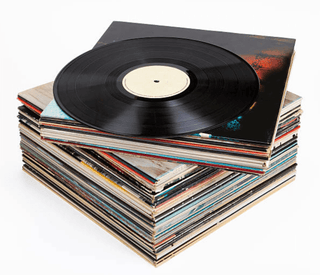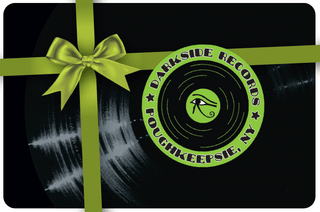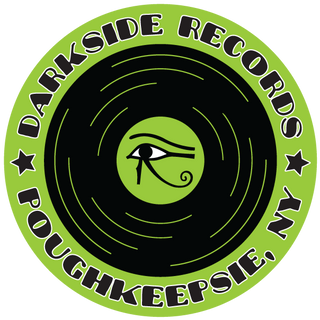Jone Martinez- Abel: Between Two Worlds - Orchestral Music

There are many reasons to consider Carl Friedrich Abel (1723-1787) one of history's most unique musicians. He was a gambist, a player of an instrument long associated with an aristocracy that was then at the height of it's decadence. But today he would be labelled "avantgarde" as one who embraced the newest musical styles and indeed genres, playing a key role in the development of the symphony. This album opens with the Symphony in C from his Opus 10 set of six symphonies. Featuring an instrumentation of two oboes, two horns, two violins, viola and basso, the score has all the hallmarks of the era's symphonic music. Abel's only vocal work of note is the aria "Frena le belle" which he contributed to the pastiche opera Sifare. So inspiring is the music, it is regrettable that Abel did not find greater repute in the vocal repertoire. Abel's updated catalogue (AbelWV, publ. Gunter von Zadow, 2023) includes 420 works, of which 29 are concertos for solo instruments. These follow the typical pattern, with three movements (first and third played fast in the home key, the second more slowly in a separate albeit related key) starting and ending in orchestral ritornellos, which are also interposed between each solo. That notwithstanding, the Flute Concerto in E minor has a very particular structure consisting of three movements all in minor keys. The viola section was reconstructed by Wolfgang Kostujak. The Harpsichord Concerto in D Guntersberg, 2022) derives from a manuscript produced by two unidentified copyists. This score, bearing an Italian title without reference to the pianoforte, suggests it was composed while Abel was still in Germany. Of the numerous concertos Abel himself performed as solo gambist during his life in London, tragically, none remain. The two on this album (Guntersberg) therefore merit some explanation. The Concerto in A comes to us from an unfinished manuscript by an unknown copyist, with no mention of the work's composer, but a comprehensive analysis of the music has led Thomas Fritzsch to attribute it to Abel. Kostujak has reconstructed the parts for first and second violins, viola, and a few passages for basso. The Concerto in G is none other than the Cello Concerto in B flat, in turn the same as the Flute Concerto in C. Such repurposing of works is not exceptional in Abel's catalogue, and a detailed analysis provides ample evidence that this was intended for viola da gamba in the original version. Other information: - Booklet in English contains liner notes by the director, Alejandro Marias, and profiles of the soloists and the ensemble - The Spanish liner notes are available for download at www. Brilliantclassics. com
> Due to the current limited nature of music titles, ALL CD & Vinyl purchases are limited to THREE copies per customer, per item. If you place multiple orders for multiples the same title, your subsequent orders will be canceled.
There are many reasons to consider Carl Friedrich Abel (1723-1787) one of history's most unique musicians. He was a gambist, a player of an instrument long associated with an aristocracy that was then at the height of it's decadence. But today he would be labelled "avantgarde" as one who embraced the newest musical styles and indeed genres, playing a key role in the development of the symphony. This album opens with the Symphony in C from his Opus 10 set of six symphonies. Featuring an instrumentation of two oboes, two horns, two violins, viola and basso, the score has all the hallmarks of the era's symphonic music. Abel's only vocal work of note is the aria "Frena le belle" which he contributed to the pastiche opera Sifare. So inspiring is the music, it is regrettable that Abel did not find greater repute in the vocal repertoire. Abel's updated catalogue (AbelWV, publ. Gunter von Zadow, 2023) includes 420 works, of which 29 are concertos for solo instruments. These follow the typical pattern, with three movements (first and third played fast in the home key, the second more slowly in a separate albeit related key) starting and ending in orchestral ritornellos, which are also interposed between each solo. That notwithstanding, the Flute Concerto in E minor has a very particular structure consisting of three movements all in minor keys. The viola section was reconstructed by Wolfgang Kostujak. The Harpsichord Concerto in D Guntersberg, 2022) derives from a manuscript produced by two unidentified copyists. This score, bearing an Italian title without reference to the pianoforte, suggests it was composed while Abel was still in Germany. Of the numerous concertos Abel himself performed as solo gambist during his life in London, tragically, none remain. The two on this album (Guntersberg) therefore merit some explanation. The Concerto in A comes to us from an unfinished manuscript by an unknown copyist, with no mention of the work's composer, but a comprehensive analysis of the music has led Thomas Fritzsch to attribute it to Abel. Kostujak has reconstructed the parts for first and second violins, viola, and a few passages for basso. The Concerto in G is none other than the Cello Concerto in B flat, in turn the same as the Flute Concerto in C. Such repurposing of works is not exceptional in Abel's catalogue, and a detailed analysis provides ample evidence that this was intended for viola da gamba in the original version. Other information: - Booklet in English contains liner notes by the director, Alejandro Marias, and profiles of the soloists and the ensemble - The Spanish liner notes are available for download at www. Brilliantclassics. com
> Due to the current limited nature of music titles, ALL CD & Vinyl purchases are limited to THREE copies per customer, per item. If you place multiple orders for multiples the same title, your subsequent orders will be canceled.







